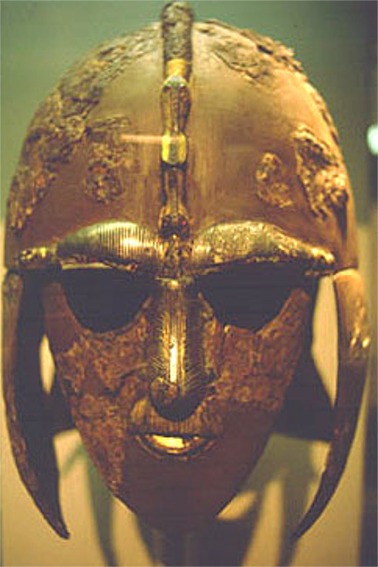Anglo-Saxon Helmet
found at Sutton Hoo
Home > England Information > Anglo-Saxon Helmet
An Anglo-Saxon helmet found at Sutton Hoo, probably belonging to Raedwald of East Anglia circa 625.

- Mike Markowski
Anglo-Saxons (or Anglo-Saxon) is the term usually used to describe the invading tribes in the south and east of Great Britain starting from the early 5th century AD, and their creation of the English nation, lasting until the Norman conquest of 1066. The Benedictine monk, Bede, identified them as the descendants of three Germanic tribes:
- The Angles, who may have come from Angeln, and Bede wrote that their whole nation came to Britain, leaving their former land empty. The name 'England' or 'Ænglaland' originates from this tribe.
- The Saxons, from Lower Saxony (German: Niedersachsen, Germany).
- The Jutes, from the Jutland peninsula.
They spoke closely related Germanic dialects and may have traced a common heritage to the Ingvaeones as described by the Roman historian Tacitus.
In contemporary usage, Anglo-Saxon is sometimes used to denote modern peoples or groups considered largely descended from the English, as in White Anglo-Saxon Protestant, and is sometimes used by non-English speakers, especially the French, to denote the Anglosphere.
From Wikipedia, the free encyclopedia


